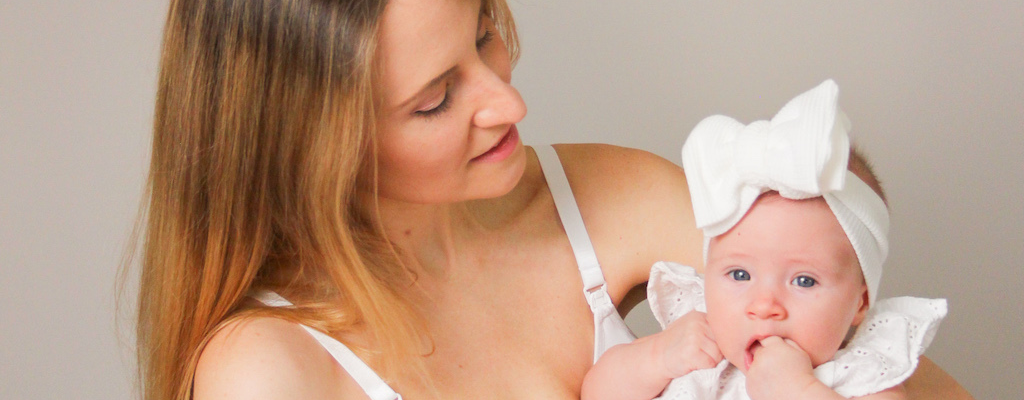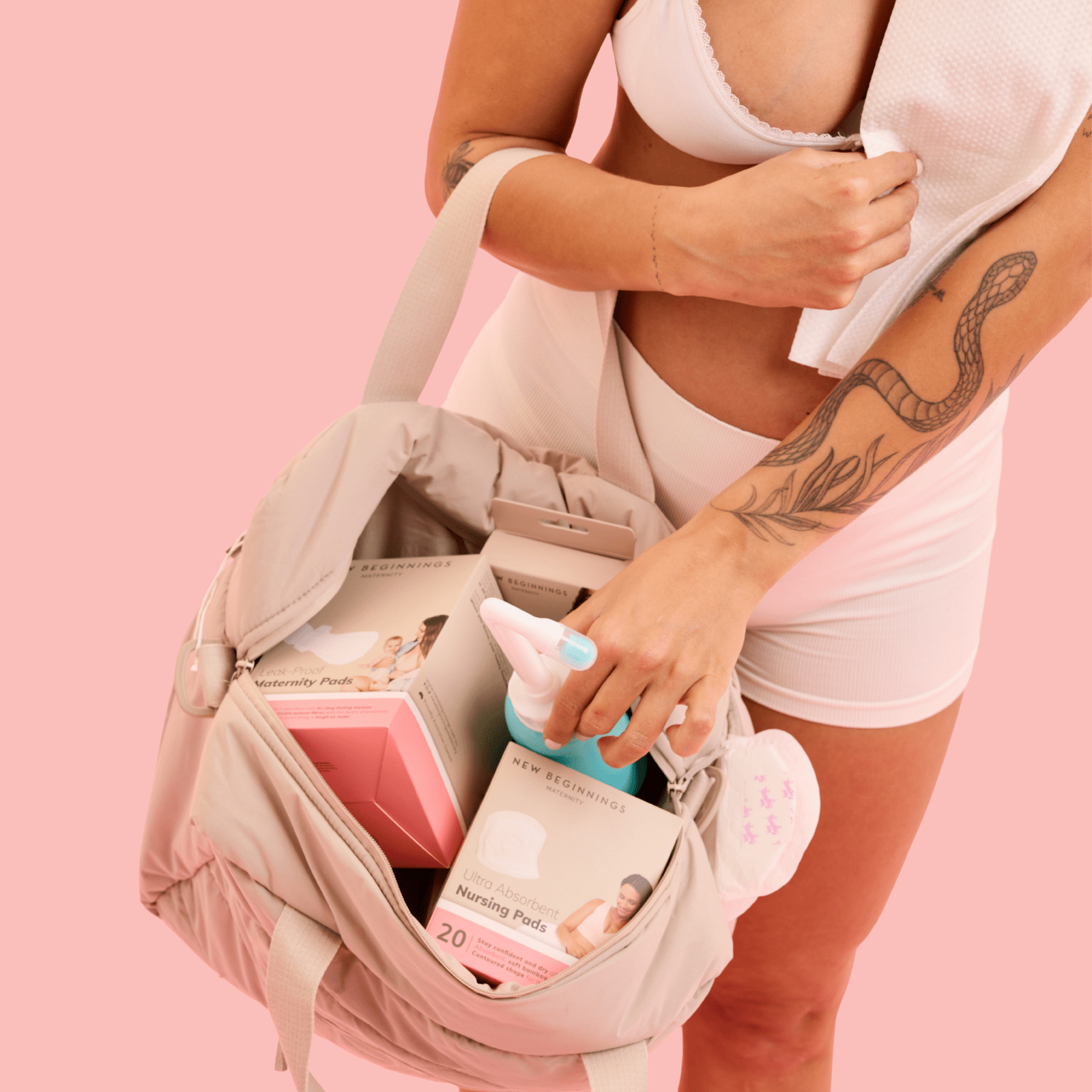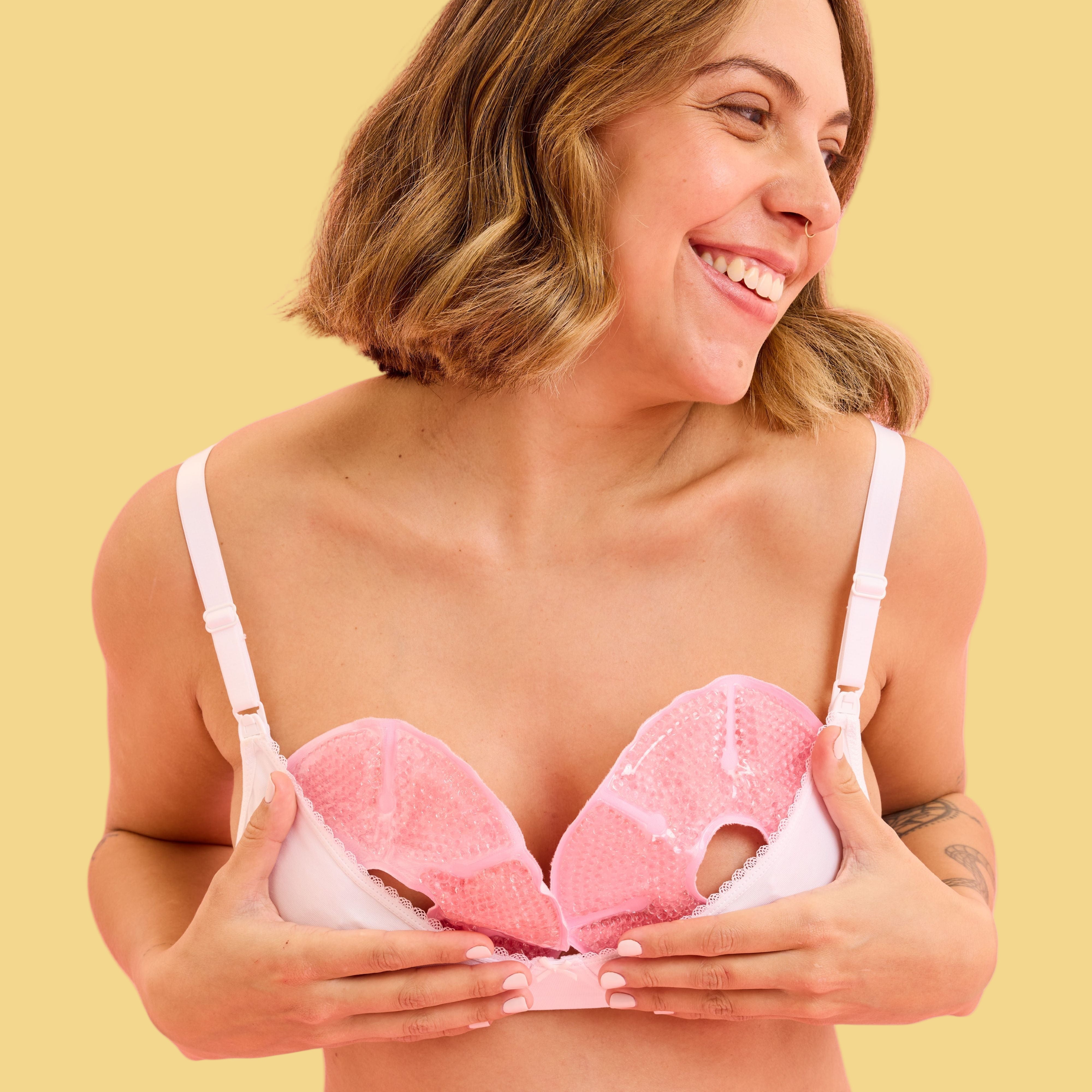Maternity Blog & News | New Beginnings
What are the benefits of Silver Nipple Cups?
Discover the power of Silver Nipple Cups for soothing sore nipples and promoting breastfeeding success. These natural, silver discs offer effective relief and protection, helping you enjoy the breastfeeding journey.
Learn moreBreast Engorgement: Causes, Symptoms, and Relief
Breast engorgement is a common postpartum experience that can be painful and uncomfortable. Learn about the causes, symptoms, and effective relief for this uncomfortable time.
Learn moreConquering Morning Sickness: Top 10 Tips to Ease Pregnancy Nausea
Morning sickness? More like "anytime, anywhere" sickness! Don't worry, mumma. Up to 80% of us experience nausea and fatigue. But fear not! Our top tips will help tame that tummy trouble and get you feeling human again.
Learn moreEssential Tips for Breast Care During Your Breastfeeding Journey
Breastfeeding's amazing, but bumps are real (sore nipples, clogged ducts!). Fear not, mamas! TLC and our tips will help you conquer these challenges for a smooth journey.
Learn moreTop Tips on Navigating C-Section Recovery: Your Journey to Healing Begins Here
You did it! You brought a beautiful little miracle into the world – and let's be honest, a C-section is no small feat. Now, it's time to focus on your own amazing recovery. This guide is your roadmap to rocking postpartum and feeling like your fantastic self again.
Learn moreMum Hack: How UV Sterilisers Can Stop The Spread of Winter Germs
Dreaded winter germs? Fight back with a mum hack: UV sterilisers! This post explores how these can keep your little ones healthy.
Learn moreFinding Your Calm: Rituals to Prepare for Labour
Feeling the excitement (and maybe a few jitters) about childbirth? It's a beautiful journey, but preparation goes way beyond packing a stylish hospital bag. This guide empowers you to navigate pregnancy wellness for body, mind, and spirit, incorporating birthing rituals to prepare you for labor.
Learn moreWhen Will the Overnight Feeds Get Easier? (and Practical Tips to Help Manage)
Exhausted by late-night baby cries? You're not alone! This whirlwind phase is temporary, but those precious winks of sleep feel oh-so-distant. Don't fret, parents! We've got a toolbox of tips to transform those chaotic nights into calmer stretches (and maybe even some sleep!).
Learn moreNavigating Postpartum Depression
Exhausted but exhilarated, you finally hold your newborn in your arms. But what about the emotional waves that follow? This article aims to help new mums navigate postpartum depression.
Learn more













